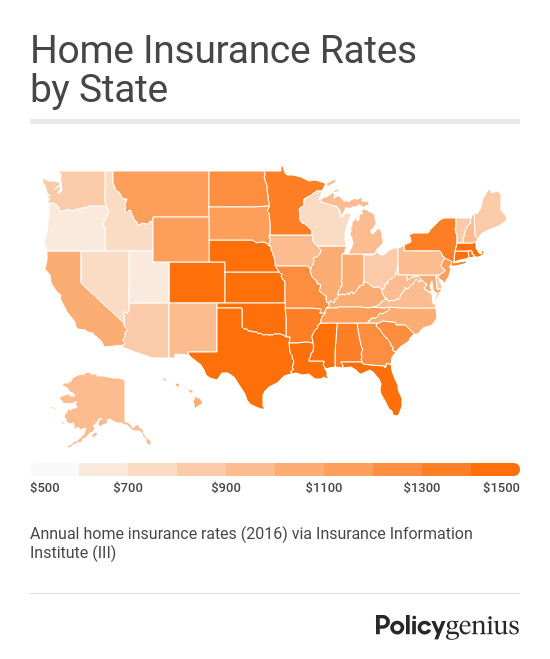The 5-Second Trick For How Much Insurance Do I Need
I have actually skipped it many times, and my number has yet to come up. If it ends up that I require to cancel or interrupt, I'll just have to take my financial swellings I played the chances and lost. But in some cases it's probably a great idea to get this protection for example, if you're paying a lot of up-front money for an organized tour or short-term accommodation rental (both of which are expensive to cancel), if you or your travel partner have questionable health, or if you have actually an enjoyed one in the house in bad health. A basic trip-cancellation or disruption insurance coverage covers the nonrefundable punitive damages or losses you sustain when you cancel a prepaid tour or flight for an appropriate factor, such as: You, your travel partner, or a relative can not take a trip because of sickness, death, or layoff, Your trip business or airline fails or can't carry out as promised A family member at house gets sick (check the fine print to see how a member of the family's pre-existing condition may affect coverage) You miss a flight or need an emergency situation flight for a reason outside your control (such as a car mishap, harsh weather, or a strike) So, if you or your travel partner inadvertently breaks a leg a couple of days prior to your journey, you can both bail out (if you both have this insurance coverage) without losing all the money you spent for the journey.
This kind of insurance coverage can be used whether you're on an organized tour or cruise, or taking a trip separately (in which case, just the pre-paid expenses such as your flight and any nonrefundable hotel bookings are covered). Keep in mind the difference: Journey cancellation is when you do not go on your trip at all. Journey disruption is when you begin a journey but need to suffice brief; in this case, you'll be repaid just for the portion of the trip that you didn't total. If you're taking a trip, it might already come with some cancellation insurance ask - What does renters insurance cover. Some insurers won't cover certain airline companies or tour operators.
Ensure your carrier is covered. Buy your insurance coverage within a week of the date you make the first payment on your trip. Policies bought behind a designated cutoff date normally 7 to 21 days, as figured out by the insurance provider are less likely to cover tour business or air carrier insolvencies, pre-existing medical conditions (yours or those of household members in the house), or terrorist incidents. Mental-health issues are typically not covered. Jittery tourists are complaining about 2 huge unknowns: terrorist attacks and natural disasters. Ask your company for information. A terrorist attack or natural catastrophe in your hometown may or may not be covered.
Even then, if your trip operator provides a replacement schedule, your protection might end up being space. As for natural catastrophes, you're covered just if your location is uninhabitable (for example, your hotel is flooded or the airport is gone). War or break outs of disease typically aren't covered. With travel turned upside down by the coronavirus pandemic, it's more crucial than ever to understand what travel insurance covers and what it does not. While the majority of basic policies offer coverage for flight cancellations and trip disturbances due to unanticipated events, the majority of COVID-19related concerns are excluded from protection, including: Worry of travel: If you decide not to take a trip out of worry of contracting COVID-19, your insurance coverage policy won't cover you.
More About What Is A Deductible In Insurance

Additional COVID-19 outbreaks: If the location you're planning to check out experiences new shutdowns after you've booked the trip, don't aim to your travel insurance for coverage. Breaking government travel cautions: If you do have coverage, your policy may be voided if you take a trip somewhere that your federal government has actually considered unsafe, or if your federal government has restricted worldwide travel. You may be able to avoid the question of what is and what isn't covered by buying an expensive "cancel for any factor" policy (described below). Health emergency situations are the primary cause for trip cancellations and disruptions, and they can include high medical bills as well as prolonged lodging bills for travel partners.
While lots of United States insurers cover you overseas, Medicare does not. Also, make certain you understand any policy exclusions such as preauthorization requirements. Even if your health insurance does cover you internationally, you might wish to think about buying an unique medical travel policy. Much of the extra protection readily available is supplemental (or "secondary"), so it covers whatever expenditures your health insurance doesn't, such as deductibles. But you can also acquire primary protection, which will take care of your costs approximately a specific quantity. In emergency situation scenarios involving pricey treatments or overnight stays, the health center will typically work directly with your travel-insurance carrier on billing (however not with your regular medical insurance company; you'll likely have to pay up front to the healthcare facility or center, then get repaid by your stateside insurer later on).
Whatever the circumstances, it's wise to contact your insurance provider from the roadway to let them understand that you've sought medical assistance. Many pre-existing conditions are covered by medical and trip-cancellation coverage, depending on when you buy the coverage and how recently you have actually been dealt with for the condition. If you travel often to Europe, multi-trip annual policies can conserve you money. Consult your agent or insurance provider before you devote. The US State Department occasionally issues cautions about taking a trip to at-risk nations. If you're going to among these nations, your cancellation and medical insurance will likely not be honored, unless you buy additional coverage.
Compare the cost of a stand-alone travel medical plan with thorough insurance coverage, which features good medical and evacuation protection. A travel-insurance company can help you figure out the alternatives. Particular Medigap strategies cover some emergency care outside the United States; call the provider of your additional policy for the details. Theft is specifically uneasy when you consider the dollar value of the products we load along. Laptop computers, tablets, cams, mobile phones, and e-book readers are all expensive to change. One way to protect your financial investment is to acquire travel insurance from a specialized business such as Travel Guard, which uses a variety of options that consist of coverage for theft.
Little Known Facts About How Much Is Gap Insurance.
It's also smart to contact your property owners or renters insurance company. Under the majority of policies, your personal effects is already secured versus theft anywhere in the world but your insurance coverage deductible still applies. If you have a $1,000 deductible and your $700 tablet is taken, you'll need to pay to replace it. Rather than buying different insurance, it might make more sense to include a rider to your existing policy to cover expensive products while you take a trip. Prior to you leave, it's an excellent concept to take a stock of all the high-value products you're bringing. Make a list of serial numbers, makes, and models of your electronics, and take images that can function as records.

